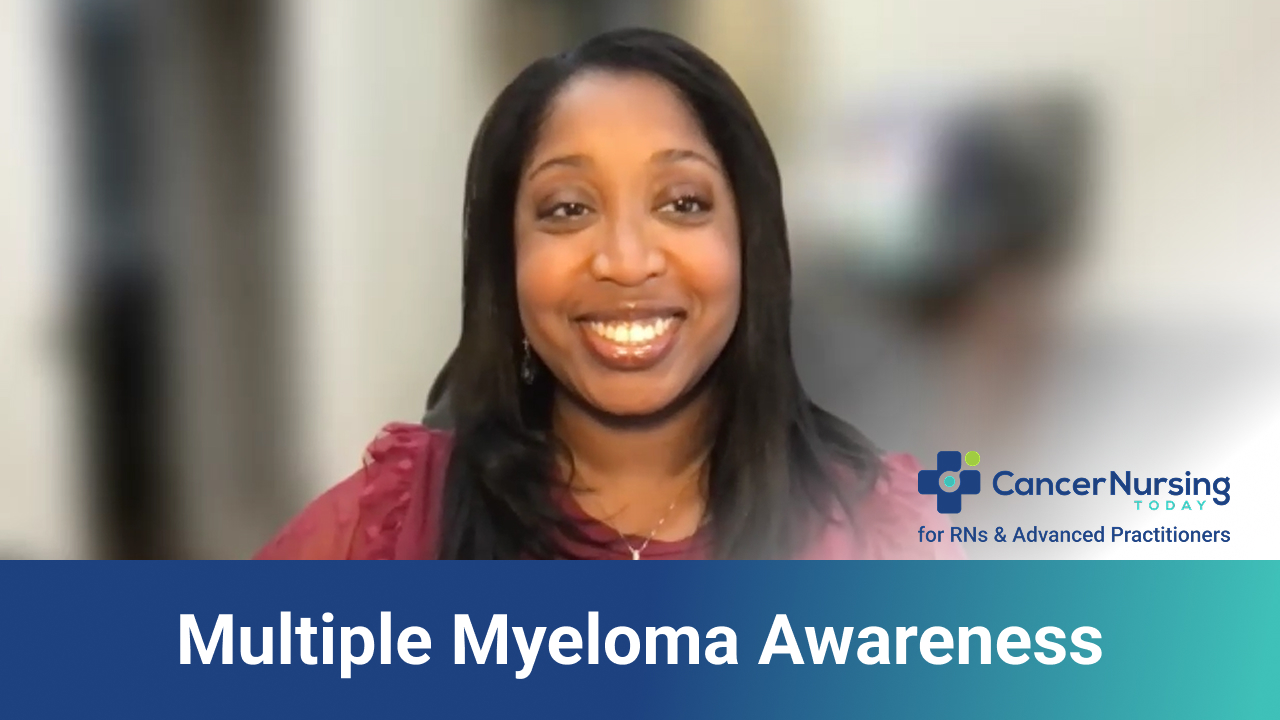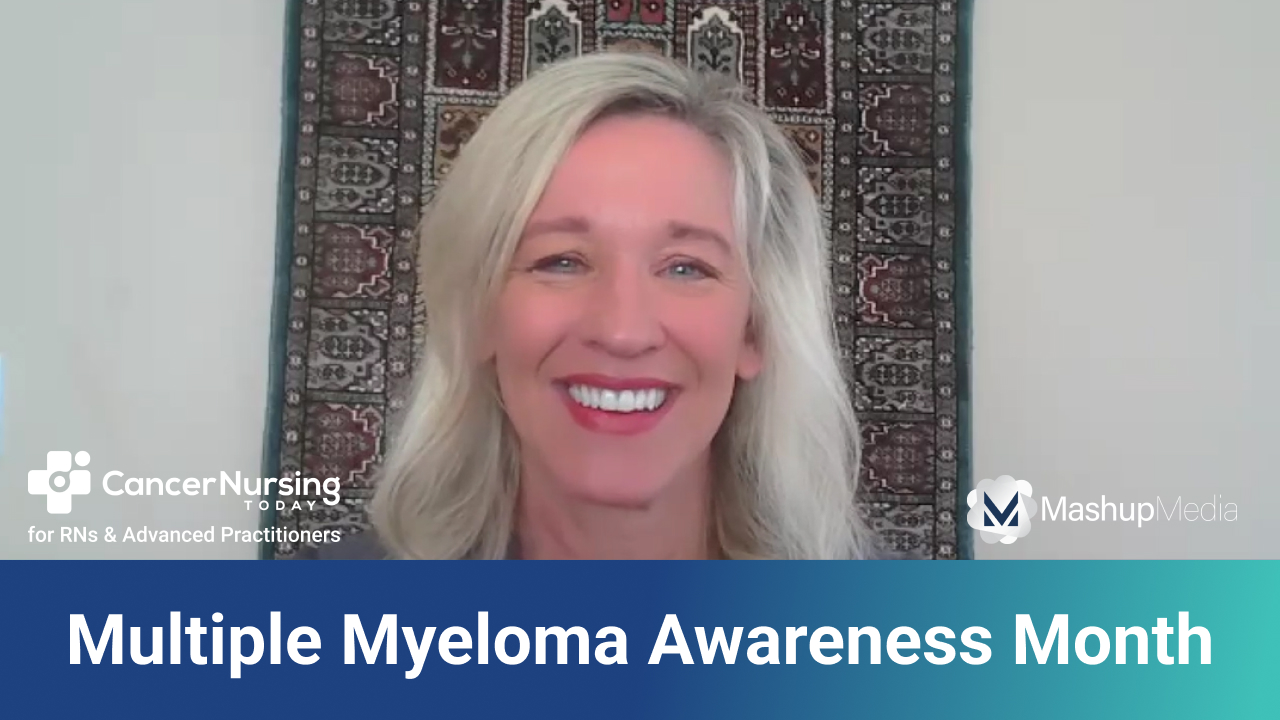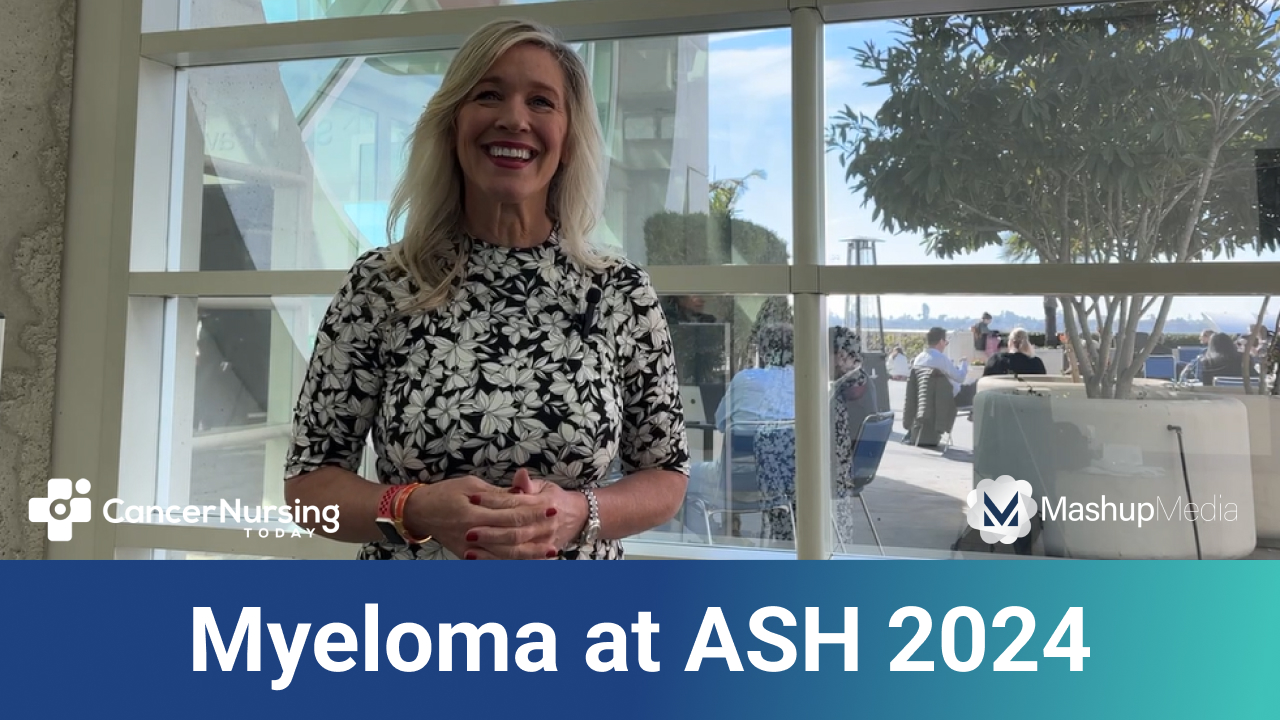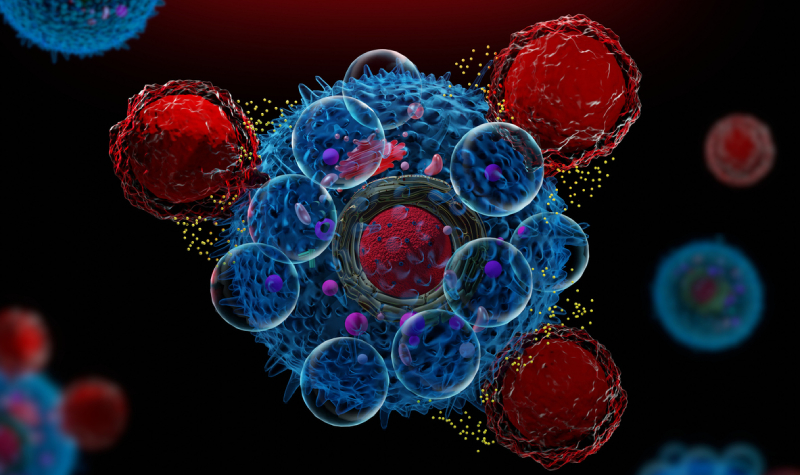Multiple Myeloma
Advertisement
Researchers used a centralized screening service to identify patients for participation in multiple myeloma clinical trials.
The recent study identified predictive factors associated with caregiver burden using six validated machine learning models.
A total of 389 patients were evaluated to understand the risk factors of BMI changes and AL ratio during induction therapy.
A series of semi-structured interviews revealed a “unique and burdensome” symptom experience among these patients.
The nurse-led team of researchers evaluated health information seeking behaviors across socioeconomic status groups.
Amy Pierre, RN, BSN, ANP-BC, shares her insights on the importance of Multiple Myeloma Awareness Month.
Multiple Myeloma Awareness Month is marked each year in March.
The clinically focused intervention invovled a symptom assessment questionnaire followed by symptom support.
Amy Pierre, RN, BSN, ANP-BC, explains why it's important for advanced practice nurses to be invovled in research.
Lisa Hwa, APRN, CNP, DNP, MS, is a member of the ASH Medical Educators Institute and has presented multiple ASH abstracts.
Beth Faiman, PhD, MSN, APN-BC, AOCN®, BMTCN®, FAAN, FAPO, shares her hopes for the new year.
Amy Pierre, RN, BSN, ANP-BC, reflects on highlights from ASH 2024 and why it's critical for advanced practitioners to attend.
Samantha Shenoy, NP, shares why it's important for nurses and APPs to consider attending the annual meeting.
Beth Faiman, PhD, MSN, APN-BC, AOCN®, BMTCN®, FAAN, FAPO, discusses the significance of ASH 2024.
Amy Pierre, RN, BSN, ANP-BC, shares insights and key action items from her ASH 2024 presentation on the topic.
Samantha Shenoy, NP, speaks about her experience at the meeting and key highlights in multiple myeloma research.
Beth Faiman, PhD, MSN, APN-BC, AOCN®, BMTCN®, FAAN, FAPO, explains key takeaways from her myeloma research at ASH 2024.
Learn how oncology nurses can assess for CRS and ICANS, which are the main side effects of CAR-T and BiTE therapies.
Oncology nurses must understand how these therapies are similar but different regarding therapy-specific side effects.
An analysis presented at ASH 2024 suggests the summation of evidence supports the therapy as a new standard of care.





















 © 2025 Mashup Media, LLC, a Formedics Property. All Rights Reserved.
© 2025 Mashup Media, LLC, a Formedics Property. All Rights Reserved.